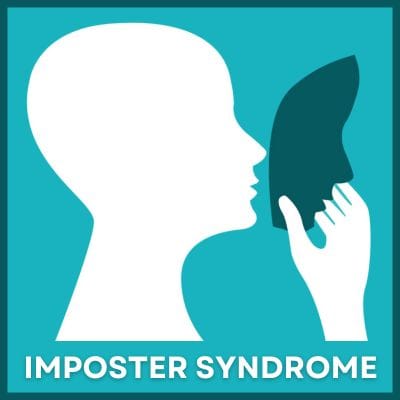Description
Objectives:
1. Define imposter syndrome (IS).
2. Understand the neuro-psycho-biological and evolutionary underpinnings of IS.
3. Understand how IS expresses itself in new professionals.
4. Appreciate the influence of IS on job satisfaction, job performance, organizational behavior and workplace culture.
5. Reflect on your own experiences of IS.
6. Identify 2 strategies you can adopt to combat IS in yourself and to support others in their struggles with IS.
Description:
Who of us in the health professions hasn’t experienced at least a moment or three when at a crucial moment, we thought “Who am I and what am I doing here?”
Join our excellent speaker, Judy Duchscher RN, BScN, MN, PhD; whose research generated a theory of Transition Shock and a model of Stage of Transition in nurses. She observes that Imposter Syndrome dates back to the mid-20th century and is rooted in organizational behaviour and workplace psychology. It’s best described as the fear of being exposed as a fraud, and episodes of imposter Syndrome often challenge the brand-new professional’s evolving sense of self, competence and confidence, despite clear evidence of knowledge proficiency and skill aptitude. Other times, Imposter Syndrome occurs in seasoned professionals who are new to a position, and feel overwhelmed with anxieties around ‘belonging’ and being ‘accepted’ in their own right and struggle to understand and achieve the expectations of their new roles and those around them.
In this session, Dr. Duchscher will: define imposter syndrome and discuss how it is expressed in both new professionals and professionals new to a position. The intent is that participants come away with a sense of how to mitigate their own experiences, how to recognize impostership in others, and how to reprogram the self-doubt and enduring lack of confidence that experiences of impostership motivate.
Who Should Attend?:
• All Health Care Professionals: Nurses, Physicians, Pharmacists, Psychologists, Social Workers, Rehabilitation Professions etc
• ‘Working’, First Line, Unit and Middle Managers in all healthcare settings.
• Educators, Preceptors, Supervisors, Coordinators
• Team Leaders & Shift Charge Personnel as appropriate on specific units.
• Nurses and Allied Health personnel who are interested in becoming leaders
 Judy Duchscher RN, BScN, MN, PhD
Judy Duchscher RN, BScN, MN, PhD
After graduating with a diploma in nursing in 1989, Dr. Duchscher’s early career was focused on developing expertise as a direct care nurse, researcher, leader and educator in cardiothoracic and high acuity (critical care) contexts. Instrumental to her early development was a 10-year tenure developing and coordinating heart, lung and multi-organ donor transplant teams across Canada and the United States. Judy’s commitment to advanced education can be seen in her acquisition of a Post-Graduate Diploma in Intensive Care Nursing from the University of Manitoba, a Diploma in Cardiovascular Nursing from Stanford University in California, a Clinical Transplant Coordinator Diploma from John’s Hopkins in Baltimore, Critical Care Registered Nurse (CCRN) certification through the American Association of Critical Care Nursing, a Post-RN Baccalaureate and Master’s degree in nursing from the University of Saskatchewan and a PhD from the University of Alberta. For the past 28 years Dr. Duchscher has been an active researcher and global consultant in the area of new graduate professional role transition – work for which she has received 33 national and international grants, awards and scholarships and published over 20 peer-reviewed articles and book chapters. The findings of her research generated a theory of Transition Shock and a model of the Stages of Transition, constructs that are being used around the world to prepare, orientate, integrate and stabilize newly graduated nurses.
Over her 46 year career, Duchscher has long witnessed the presence of imposter ‘syndrome’ or ‘phenomenon’ in herself, her colleagues and particularly the newly graduated nurses with whom she has extensively worked. Encompassed with the initial stage of professional role transition, a sense of impostership is situated within Duchscher’s transition shock construct but can extend well beyond the initial weeks and months of a new position, she says. Imposter syndrome dates back to the mid 20th century and is rooted in organizational behavior and workplace psychology. Constant fear of being exposed as a fraud challenges the new professional’s evolving sense of self, professional competence and confidence, despite clear evidence of knowledge proficiency and skill aptitude. Oftentimes, professionals new to a position feel overwhelmed with anxieties around ‘belonging’ and being ‘accepted’ as professionals in their own right and struggle to understand and achieve the expectations of their new roles and those around them. This session will define imposter syndrome, discuss how it is expressed in both new professionals and professionals new to a position. The intent is that participants come away with a sense of how to mitigate their own experiences, how to recognize impostership in others, and how to reprogram the self-doubt and enduring lack of confidence that experiences of impostership motivate.






